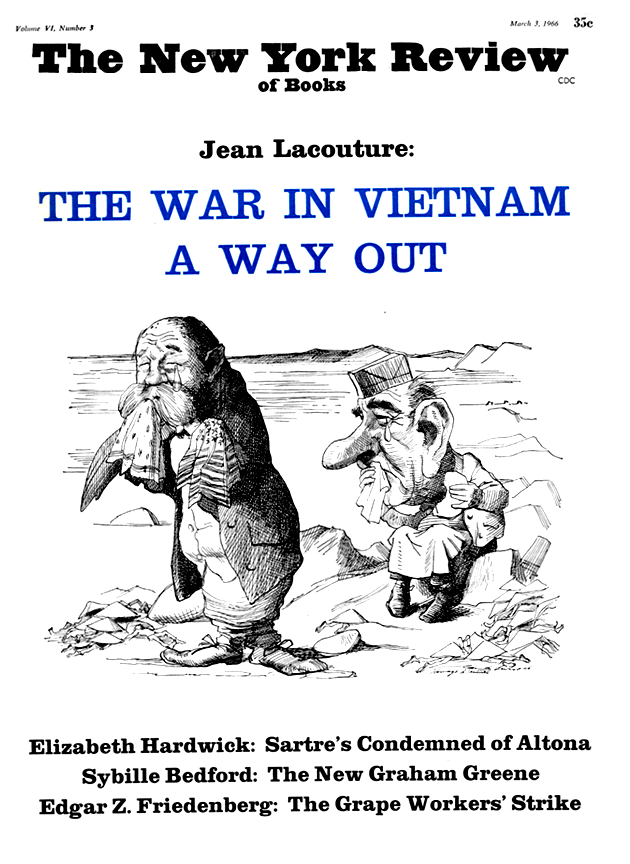In response to:
The Mask of Albert Camus from the December 23, 1965 issue
To the Editors:
It is good to read Paul de Man’s reconsideration of Camus (December 23) based upon the 1942-1951 Notebooks, but I am disturbed by several of the assumptions he makes, both about Camus the man and writer, and about Camus’s current standing with “a new generation.”
I have considered Camus carefully, and, in the course of some twelve years of college teaching, discussed his novels with literally hundreds of intelligent students of literature…. The “new generation” of college students has responded, at least in my teaching experience, to Camus as to no other modern writer I know. It has been my custom to ask for an anonymous ranking by each student of the works studied in any specific course—a ranking based entirely on the degree to which the works were “meaningful” to the students. In any literature course where Camus has appeared, his book has always stood at the top. This has been especially true for The Fall, which I have included consistently for the past five years.
I therefore question Mr. de Man’s statement that “one can well imagine how he might prove disappointing to a new generation…”
…. The college students I have known consider Camus the most courageous writer of their time. They are not looking for answers because they are convinced, as Camus was, that generalized answers do not exist. They are looking for clear, resolute pictures of the world they know, and they have found these pictures in Camus. I could not agree with them more. By comparison, Sartre’s works, especially the later ones, do offer “answers,” and they seem both inadequate and politically suspect to many students. I shall never forget the bewilderment and disappointment of my students at Carnegie Tech when Sartre cancelled his lecture trip to the United States…because of the segregation problems so prominent in the news. Why did he not come and see, and then judge? Camus, they felt, would have at least come and at least tried to understand.
So I must on every count question Mr. de Man’s assumptions about Camus’s place today, the final one of which reads, “Before we can blame our times for moving away from him….” All my experience tells me that our times have moved toward him: they mourn Camus’s loss ever more deeply because he seemed to come closer than any other philosopher-writer of fiction to helping us understand “our times.”
Beekman W. Cottrell
Carnegie Institute of Technology
Pittsburgh
This Issue
March 3, 1966


